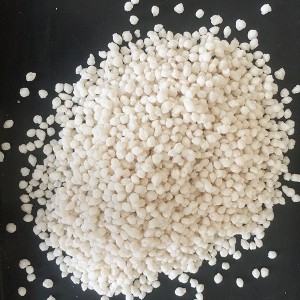Diammonium phosphate: uses and properties
Introducing our high-quality Diammonium Phosphate (DAP), a multi-purpose fertilizer essential for the growth and development of a variety of crops. DAP is a highly soluble fertilizer that is easy to use and ensures less solids are left behind after dissolution. This property makes it ideal for meeting the nitrogen and phosphorus needs of a variety of crops.
Diammonium phosphate is a valuable source of nitrogen and phosphorus, two essential nutrients critical to healthy plant growth. It is particularly beneficial for promoting root development, improving flowering and fruiting, and increasing overall crop yields. DAP has excellent water solubility and is easily absorbed by plants, ensuring efficient absorption and utilization of nutrients.
Our DAP is manufactured to the highest standards, ensuring its purity and effectiveness. We take great care during the production process to ensure that our products meet the needs of modern agriculture.
| Item | Content |
| Total N , % | 18.0% Min |
| P 2 O 5 ,% | 46.0% Min |
| P 2 O 5 (Water Soluble) ,% | 39.0% Min |
| Moisture | 2.0 Max |
| Size | 1-4.75mm 90% Min |
Standard: GB/T 10205-2009
Diammonium phosphate is a white crystalline salt with high solubility in water. It is hygroscopic, meaning it easily absorbs moisture from the atmosphere. This property makes it important to store DAP in a dry environment to prevent clumping and maintain its effectiveness.
One of the main advantages of DAP is its high nutrient content, providing plants with essential phosphorus and nitrogen. It is versatile and can be used as both base and top dressing. Additionally, DAP's lower pH helps reduce soil alkalinity and improves plant uptake of nutrients.
While DAP offers many benefits, it is also important to consider its potential drawbacks. Excessive application of diammonium phosphate can cause soil nutrient imbalances and may be harmful to the environment. Additionally, its hygroscopic nature requires careful handling and storage to maintain its quality.
- When high levels of phosphorus reguired in combination with nitrogen: e.g. for root development at an early stage in the growing season;
- Used for foliar feeding, fertigation and as an ingredient in NPK;-A highly efficient source of phosphorus and nitrogen;
- Compatible with most water soluble fertilizers.


Diammonium phosphate (DAP) is a widely used inorganic salt with the chemical formula (NH4)2HPO4. Due to its unique performance and characteristics, it is famous for its wide range of applications in various industries. DAP is colorless transparent monoclinic crystal or white powder. It is easily soluble in water but not in alcohol, making it a convenient and effective substance for many uses.
Diammonium phosphate is widely used in analytical chemistry, food processing, agriculture and animal husbandry. Its wide range of uses makes it an indispensable compound in a variety of industrial and commercial processes.
In the field of analytical chemistry, diammonium phosphate is used as a reagent in various analytical procedures. Its solubility in water and compatibility with other substances make it ideal for chemical analysis and experiments. The compound's purity and consistency make it a reliable ingredient in laboratory settings.
In the food processing industry, DAP plays a vital role as a food additive and nutritional supplement. It is often used as a leavening agent in baking, helping to create carbon dioxide, which creates a light, airy texture in baked goods. In addition, diammonium phosphate is used as a source of nitrogen and phosphorus in food fortification, helping to increase the nutritional value of processed foods.
Agriculture and animal husbandry benefit greatly from the use of diammonium phosphate. As a fertilizer, DAP provides essential nutrients to plants, promoting healthy growth and increasing crop yields. Its high solubility ensures efficient uptake of nutrients by plants, making it an effective choice for agricultural applications. Additionally, DAP is used in animal feed formulations to enhance nutritional content and support livestock health and well-being.
One of the popular forms of diammonium phosphate is DAP pellets, which offer ease of handling and application in a variety of agricultural practices. DAP pellets provide a sustained release of nutrients, making them suitable for use in fertilization programs for a variety of crops.
In summary, diammonium phosphate is a valuable compound with numerous applications in different industries. Its solubility, compatibility and nutritional content make it an important component in analytical chemistry, food processing, agriculture and animal husbandry. Whether in the form of crystals, powders or granules, DAP remains an essential substance that contributes to the advancement and efficiency of a variety of processes and products.
Package:25kg/50kg/1000kg bag woven Pp bag with inner PE bag
27MT/20' container, without pallet.

Q1. Is diammonium phosphate suitable for all types of crops?
DAP is suitable for a variety of crops, including those requiring nitrogen-neutral phosphorus.
Q2. How to apply diammonium phosphate?
DAP can be applied by a variety of methods, including broadcast, striping and fertigation, depending on the specific requirements of the crop and soil.
Q3. Can diammonium phosphate be used in organic farming?
Although DAP is not considered an organic fertilizer, it is commonly used in conventional farming practices to provide essential nutrients to crops.






